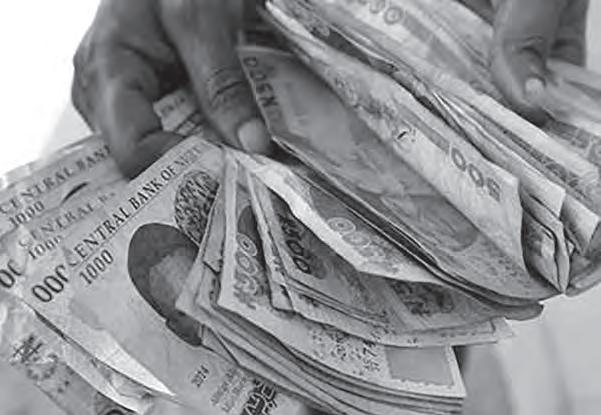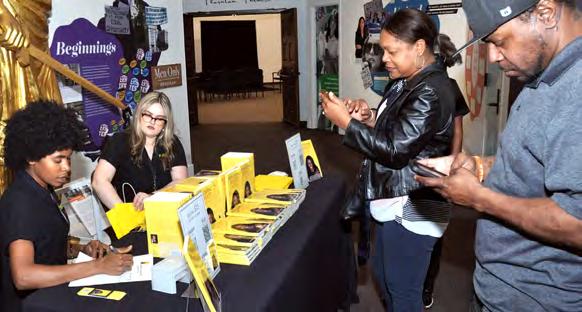
1 minute read
NIGERIAN CENTRAL BANK ON HOT SEAT AFTER SWEEPING BANKNOTE RECALL
By Lisa Vives GLOBAL INFORMATION NETWORK
Chaos!
It’s hard to find a better word to describe the confusion, frustration and anger felt by many Nigerians discovering that, in a surprise move by the Central Bank, their naira currency was being pulled from circulation and replaced by a redesigned version which was still unavailable in many banks.
Efforts to replace old banknotes with new ones before a February deadline were stymied by long lines, gas shortages, insecurity and a lack of water and electricity. People found themselves spending hours at the banks fruitlessly attempting to withdraw their money.
With elections coming up at the end of the week, it was an oddly ill-timed move by bank officials.
President Muhammadu Buhari, who is stepping down after the legal two term limit, defended the swap, saying the redesigned denominations of 200 (43 U.S. cents), 500 ($1.08) and 1,000 naira ($2.17) notes and new limits on large cash withdrawals would help curb money laundering and make digital payments the norm in Africa’s biggest economy.
But Nigeria’s main ratings agency called the process “rushed,” with commercial banks unable to supply new cash to customers.
“The two critical sectors of the economy — trade and commerce as well as agriculture — have been very badly affected because they do a lot of transactions in cash, especially in rural areas,” said Muda Yusuf, head of the Nigeria Center for Promotion of Private Enterprise. “This policy has brought their economic activities to a halt.”
“No ATM is giving money,” complained 21 year old Alexander Okwori. “I went to 10 banks, there are no new notes.”
“To get my PVC (voting card), I have to line up again. For what? They (politicians) are all the same,” he told a reporter.
The main candidates vying to replace Buhari are Bola Tinubu of the president’s governing party, Atiku Abubakar of the main opposition group, and Peter Obi of the largely unknown Labor Party of young social media-savvy supporters. “[This election] is the old against the new,” he told the BBC. Tinubu and Abubakar are old political hands, wealthy but also dogged by corruption suspicions in the minds of many voters, while followers of Obi, nicknamed “Obidients - said









